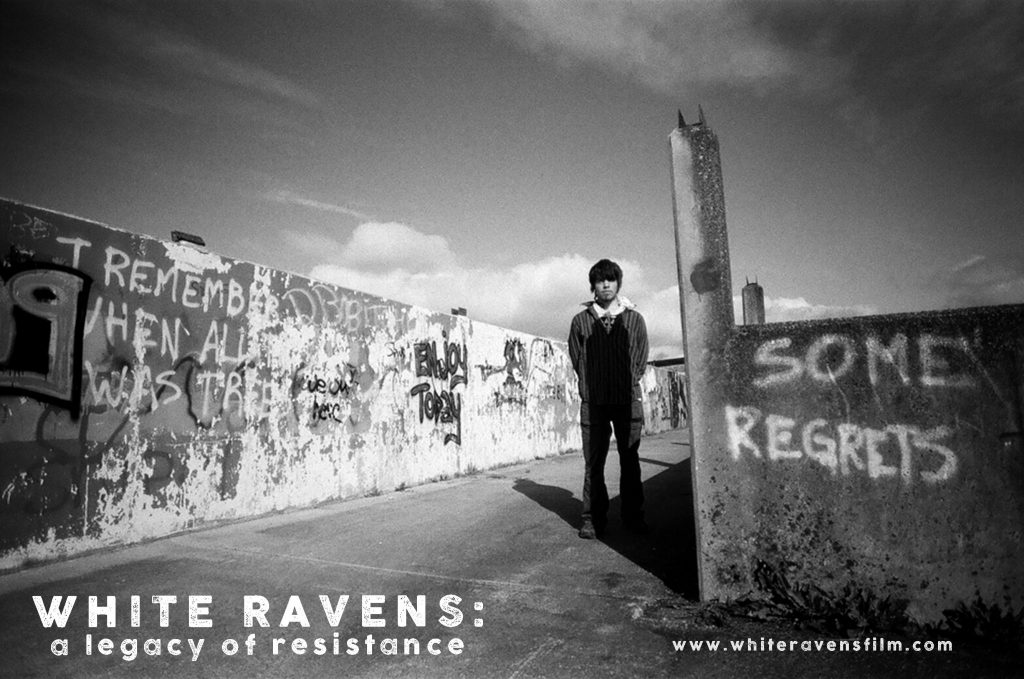by Jonah Barrett for OLY ARTS
The island archipelago of Haida Gwaii lies 585 miles from Olympia, WA. These islands serve as the heartland of the Haida Nation, and the setting of Georg Koszulinski’s new social justice documentary, White Ravens. The film focuses on the history of the Indigenous Haida Nation and their current resistance efforts against island deforestation and colonization.
“The islands…are a place of exceptional beauty and wonder,” said Koszulinski. “When I first saw the large-scale devastation caused by industrial logging, I was shocked. Even on these islands, which are rather far removed from the continental mainland, massive clear-cuts have decimated the forests and in turn destroyed the salmon populations on the rivers that run through those forests.”
“These amazing places will help you heal,” one man tells the camera, as we walk alongside him through the temperate forests. These woods are filled with history, as the ancient remains of Haida Gwaii “love boat” canoes are scattered about the trees like nurse logs. These same “love boats” are sometimes stripped of their bark and shipped in logging trucks for wood, part of the archipelago’s struggle with the lumber industry. To see one’s culture stripped away, be it ancient canoes or Indigenous children being shipped off to residential schools, is a lot of trauma to take on. The man describes his process of letting go of anger with a primal scream, and how nature helps him release the darkness from his heart. It’s but one of many affecting moments during a powerful film.
Most of the documentary follows the young Haida poet Towustasin Stocker, who guides the viewer throughout the islands to showcase the beautiful and ugly of the islands. “I remember when all of this was trees,” reads on a graffitied wall in the town of Massett, which Stocker explains was “borderline ghosted for resource extraction.”
“All of the film’s central participants helped shape the final cut of the film, from deciding on where and what we might film, to revising individual scenes based on feedback and discussion,” said Koszulinski. “Working with Towustasin was especially collaborative because he’s both the central participant in the film, and an artist himself, so his ideas are embedded throughout the film. In general, as a director and cinematographer, what I mostly did was listen and follow our participants.”
A white raven is someone who steals knowledge and gives it to the world, asking for nothing in return. This documentary of the same name asks us to listen as well. “For First Nations audiences, I hope the film can be used as a means of facilitating conversation about the trauma that so many Indigenous people live with every day,” said Koszulinski. “For non-Indigenous audiences who are less aware of the history of genocide in the Americas, and far removed from that lived experience, I think the film can serve as an educational tool, potentially even invite people who identify as settler colonists to ask about their own role in the legacy of colonization.”
WHAT:
White Ravens film
+ Post-Film Q&A with Director Georg Koszulinski
WHEN:
May 30, 2018
7:00PM
WHERE:
206 5th Ave SE, Olympia, WA 98501
HOW MUCH:
General Admission $9 / OFS Members $6
LEARN MORE:

